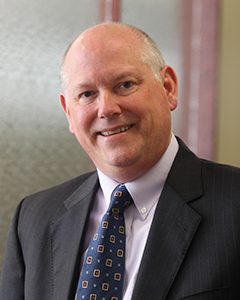The Importance of Retroactive Adoption of Retirement Plans

Implicit in planning for retirement is looking ahead. But thanks to the SECURE Act and the Internal Revenue Service (IRS), it can pay to look to the past as well.
The Setting Every Community Up for Retirement Enhancement (SECURE) Act of 2019 allows an employer to retroactively adopt a retirement plan after the close of the employer’s taxable year. For example, a calendar year taxpayer can adopt a plan in 2021 for last year (2020) as late as Oct. 15, 2021, assuming that that is the extended due date for filing the employer’s tax return for 2020. Under such a scenario, the plan is assumed to be adopted as of the last day of the employer’s prior tax year – i.e., Dec. 31, 2020.
The provision applies to plans adopted for taxable years beginning after Dec. 31, 2019.
This presents a great opportunity for some companies – particularly small businesses – in that it may help save them serious money in taxes by providing much-needed financial flexibility. If a given business made hundreds of thousands of dollars in calendar year 2020, they could potentially save anywhere from 30% to 50% in taxes by going the retroactive route.
In the past, we often saw clients rushing in November and December to sign their new plan documents before the Dec. 31 deadline. Now that pressure is off.
The clock is of course ticking – but it is not too late to take advantage of the SECURE Act provision. Indeed, according to reports, a significant number of employers took advantage of the provision earlier this year, following the close of their 2020 taxable years.
Even so, there had been some uncertainty over the how’s and why’s of completing Forms 5500 for the 2020 plan year. Form 5500, which must be filed electronically along with the appropriate schedules and attachments, is required for most employee benefit plans with 100 or more participants and small plans that don’t qualify for an exemption.
On Aug. 6, the IRS issued additional guidance to address that issue.
That guidance states that if, for example, an employer adopts a plan during the employer’s 2021 taxable year (but not later than the due date, including extensions, for filing the employer’s 2020 tax return) – and decides to treat the plan as having been adopted as of the last day of the employer’s 2020 taxable year – then the plan sponsor will not be required to file a Form 5500 for the plan year that begins during the employer’s 2020 taxable year.
Instead, the agency said, the first Form 5500 required to be filed with respect to the plan will be the 2021 Form 5500. (Note, however, that the plan sponsor will be required to check a box on the 2021 Form 5500 indicating that the employer elects to treat the plan as retroactively adopted as of the last day of the employer’s 2020 taxable year.)
In addition, if the plan is a defined benefit plan, the employer will be required to attach a 2020 Schedule SB to the 2021 Form 5500 or Form 5500-SF, as well as a 2021 Schedule SB. The instructions for the 2021 Form 5500 will further explain the filing requirements for plans adopted retroactively.
“We anticipate that similar rules will apply to the retroactive adoption of a plan pursuant to section 201 of the SECURE Act after an employer’s 2021 taxable year,” the IRS said.
Retro-adoption could be a good thing for many small businesses contemplating starting a new retirement plan. Consult with a reputable financial advisor for more details.
About the Author
